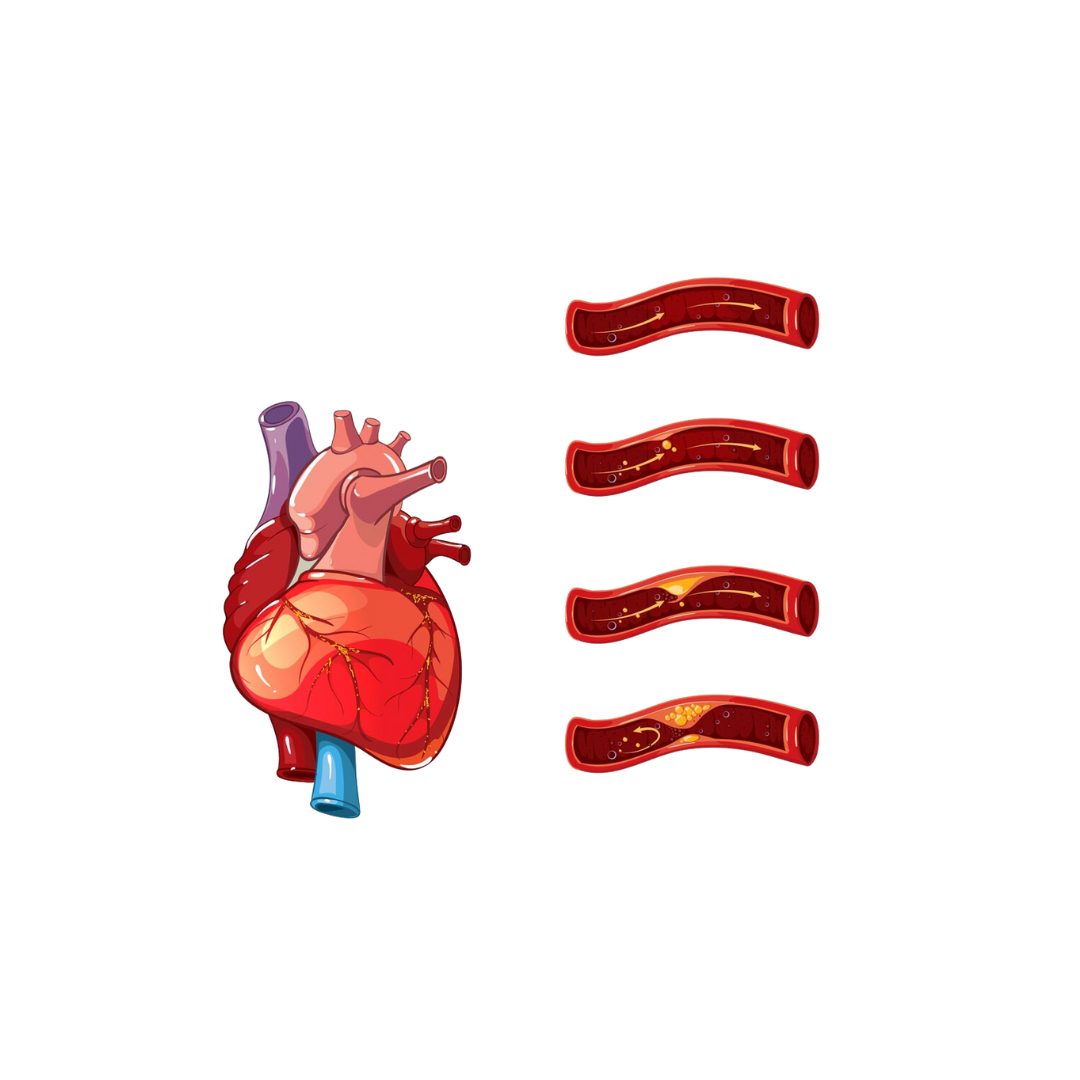What is Atherosclerosis?
Atherosclerosis is a condition characterized by the buildup of plaque in the arteries, leading to their narrowing and hardening. Plaque is made up of cholesterol, fatty substances, calcium, and other substances found in the blood.
Over time, this buildup can restrict blood flow to vital organs such as the heart, brain, and limbs, increasing the risk of serious complications such as heart attacks, strokes, and peripheral artery disease.
Side Effects of Atherosclerosis:
The effects of atherosclerosis can vary depending on which arteries are affected. Common symptoms may include:
1. Chest pain or angina
2. Shortness of breath
3. Fatigue
4. Weakness
5. Numbness or weakness in the limbs
6. Difficulty speaking or understanding (in the case of stroke)
7. Erectile dysfunction (in men)
How is Atherosclerosis Diagnosed?
Atherosclerosis is often diagnosed through a combination of medical history, physical examination, and diagnostic tests. Common diagnostic tests used to evaluate atherosclerosis include:
Potential Treatments of Atherosclerosis:
1. Lifestyle Modifications: Adopting a healthy lifestyle can help manage Atherosclerosis and reduce the risk of complications. This may include quitting smoking, following a heart-healthy diet, exercising regularly, and managing stress.
2. Medications: Various medications may be prescribed to lower cholesterol levels, control blood pressure, prevent blood clots, and reduce inflammation.
3. Interventional Procedures: In cases where plaque buildup is severe and causing significant blockages, interventional procedures such as angioplasty and stent placement may be performed to open blocked arteries and restore blood flow.
4. Surgery: In some cases, surgery such as coronary artery bypass grafting (CABG) may be recommended to bypass blocked arteries and improve blood flow to the heart.
👉 Contact us for further information and receive a complimentary consultation.


.webp)
 (1).webp)

.webp)
 (1).webp)


.webp)
 (1).webp)

.webp)
 (1).webp)
